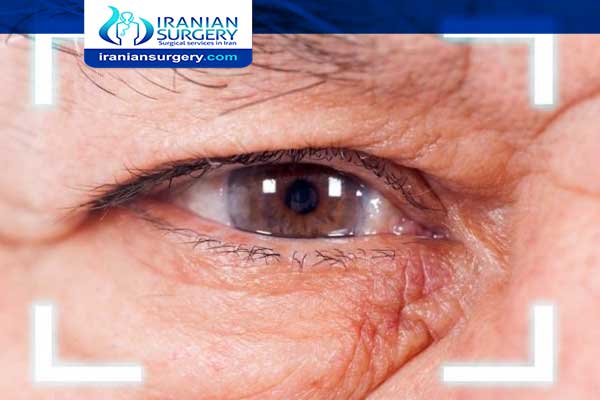Do and don'ts after cataract surgery?
What patients can expect after having cataract surgery
Immediately after cataract surgery
Before you leave the day surgery, you will be prescribed eye drops or other medication to prevent infection, reduce inflammation and control eye pressure. You'll need to apply the eye drops several times daily for about the first week following surgery. Depending on the amount of postoperative inflammation you have, you may need the drops for a few weeks to a month. Make sure you use these eye drops exactly as prescribed.
Oral pain relievers such as acetaminophen may be prescribed, if needed. Typically, however, you should feel only slight discomfort after cataract surgery.
You will need to have a family member or friend with you to take you home. Once you get home, it is recommended that you rest your eyes and nap. Several hours post-surgery, most people are able to watch some television or look at a computer screen for a short period of time. Because cataract surgery is only performed on one eye at a time, you may notice an imbalance in your vision until the second eye is operated on (from 1–4 weeks later).
Read more about : Can you Watch TV after Cataract Surgery?
Read more about : How to Put in and Remove Contact Lenses?
Read more about : Cataract Surgery Complication
Read more about : Lasik eye surgery
Days after cataract surgery
It is normal for vision to be blurry in the beginning – your eye needs to heal and adjust. Vision will normally begin to improve within a few days of the surgery. It’s also normal for your eye to feel itchy and to experience mild discomfort for a couple of days – your doctor will ask you to wear an eye patch or protective shield at night to ensure you don’t rub your eye while you sleep. This discomfort should disappear after a few days.
Weeks after cataract surgery
While everyone is different, the average experience for the weeks following cataract surgery involves a gradual recovery of the eye. Adjustments in vision will occur for a few months after surgery.
Tips for post cataract surgery
Although most people can resume everyday activities 24 hours after cataract surgery, there are a few instructions that you will be asked to follow. They include:
. Don’t do any strenuous activities for a few weeks. Avoid rigorous exercise and heavy lifting.
. Don’t drive. The length of time after cataract surgery before you can drive depends on a number of factors – your doctor will tell you when it is safe to resume driving.
. Follow your doctor’s orders regarding any antibiotic and anti-inflammatory eye drops. These are important to prevent infection and inflammation and ensure proper healing. If you have difficulty in administering them, get a friend or family member to help you out.
. Stay away from dusty areas. It’s a great idea to have your house vacuumed and cleaned before surgery, as your eyes will be sensitive to airborne allergens such as dust.
. Don’t rub your eye. Eye rubbing is a quick way to develop a nasty infection. It’s never a good idea, even when you aren’t recovering from surgery.
. Don’t swim. It’s best to avoid swimming or hot tubs for a week after surgery.
. Don’t wear make-up. Ask your doctor when you can resume doing so.
. Don't drive on the first day following surgery.
. Immediately after the procedure, avoid bending over to prevent putting extra pressure on your eye.
. If at all possible, don't sneeze or vomit right after surgery.
. Be careful walking around after surgery, and don't bump into doors or other objects.
. Do wear your protective eyewear
Read more about : Bruising after chalazion surgery
Symptoms to watch for after cataract surgery
If you experience any of the following symptoms, please contact your ophthalmologist:
. Vision loss
. Pain that persists despite the use of over-the-counter pain medications
. Light flashes or multiple spots (floaters) in front of your eye
. Nausea, vomiting or excessive coughing
. Severe fluid discharge
No information here is intended to substitute for advice from a qualified medical practitioner. If you or someone else you know are about to have cataract surgery, make sure you ask your ophthalmologist to outline the best steps for recovery.
Cataract surgery typical outcomes
Cataract surgery is one of the safest and most commonly performed surgical procedures in Iran. More than 4 million cataract surgeries are performed in Iran each year, and most people have excellent outcomes with no cataract surgery complications.
Past studies show:
. Almost 96% of eyes that had no other problems such as other eye diseases prior to a cataract procedure achieved at least 20/40 uncorrected distance visual acuity, which legally is good enough to drive without eyeglasses or contact lenses.
. In all eyes, including those with pre-existing eye conditions other than cataracts, almost 90% of all patients had good outcomes.
. Fewer than 2% of eyes that undergo cataract surgery have sight-threatening complications after the procedure.
In rare cases, sight-threatening cataract surgery complications such as endophthalmitis — an inflammation of the inside of the eye, usually caused by an eye infection — can occur.
People who experience serious complications often have other health conditions such as diabetes or high blood pressure.
A relatively common complication of cataract surgery that usually can be treated easily is posterior capsular opacification (PCO), which can cause your vision to become cloudy months or years after cataract removal. A simple laser procedure called a posterior capsulotomy usually can clear up the cloudiness and restore sharp vision.
sources:
https://myhealth.alberta.ca/Health/aftercareinformation/pages/conditions.aspx?hwid=zy1459


